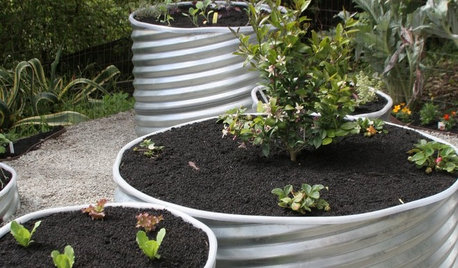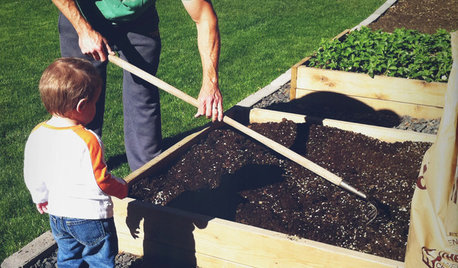Adding worms to raised beds
Firehouse Painting
18 years ago
Featured Answer
Comments (12)
recluse
18 years agolast modified: 9 years agosqueeze
18 years agolast modified: 9 years agoRelated Professionals
Allentown Landscape Architects & Landscape Designers · Beachwood Landscape Architects & Landscape Designers · Harvey Landscape Architects & Landscape Designers · Clayton Landscape Contractors · Hoffman Estates Landscape Contractors · Metairie Landscape Contractors · Plymouth Landscape Contractors · Salmon Creek Landscape Contractors · Goldenrod Landscape Contractors · Four Corners General Contractors · Buena Park General Contractors · Irving General Contractors · Leon Valley General Contractors · Milton General Contractors · Saint George General Contractorsbeachcat
18 years agolast modified: 9 years agowfike
18 years agolast modified: 9 years agorecluse
18 years agolast modified: 9 years agokcmo_don
18 years agolast modified: 9 years agomeccamorphosis
8 years agochaparralgirl
7 years agotheparsley
7 years agohummersteve
7 years agogorbelly
7 years ago
Related Stories

GARDENING GUIDESHouzz TV: Make a Worm Bin for Rich Soil and Happy Plants
A worm-powered compost bin that can fit under a sink turns food scraps into a powerful amendment for your garden. Here’s how to make one
Full Story
GARDENING GUIDES8 Materials for Raised Garden Beds
Get the dirt on classic and new options for raised vegetable and plant beds, to get the most from your year-round garden
Full Story
GARDENING AND LANDSCAPINGBuild a Raised Bed to Elevate Your Garden
A bounty of homegrown vegetables is easier than you think with a DIY raised garden bed to house just the right mix of soils
Full Story
FARM YOUR YARDHow to Build a Raised Bed for Your Veggies and Plants
Whether you’re farming your parking strip or beautifying your backyard, a planting box you make yourself can come in mighty handy
Full Story
REMODELING GUIDESAsk an Architect: How Can I Carve Out a New Room Without Adding On?
When it comes to creating extra room, a mezzanine or loft level can be your best friend
Full Story
MODERN HOMESHouzz TV: Seattle Family Almost Doubles Its Space Without Adding On
See how 2 work-from-home architects design and build an adaptable space for their family and business
Full Story
MOST POPULARThe 25 Most Popular Photos Added to Houzz in 2013
See the newly uploaded images of kitchens, bathrooms, bedrooms and more that Houzz users really fell for this year
Full Story
HOUZZ TOURSHouzz Tour: A Radical Reconstruction Raises an Austin Home
With a new second floor and some room swapping downstairs, this 1935 Texas bungalow now fits an architect and his family beautifully
Full Story
BARN HOMES12 Bar-Raising Barns
Homeowners make hay out of renovated, reclaimed and newly raised outbuildings
Full Story
WINDOW TREATMENTSRoller Shades Raise the Curtain on Style
The humble window treatment is stealing the scene with fresh patterns, color and pizzazz
Full StoryMore Discussions






Jon Biddenback